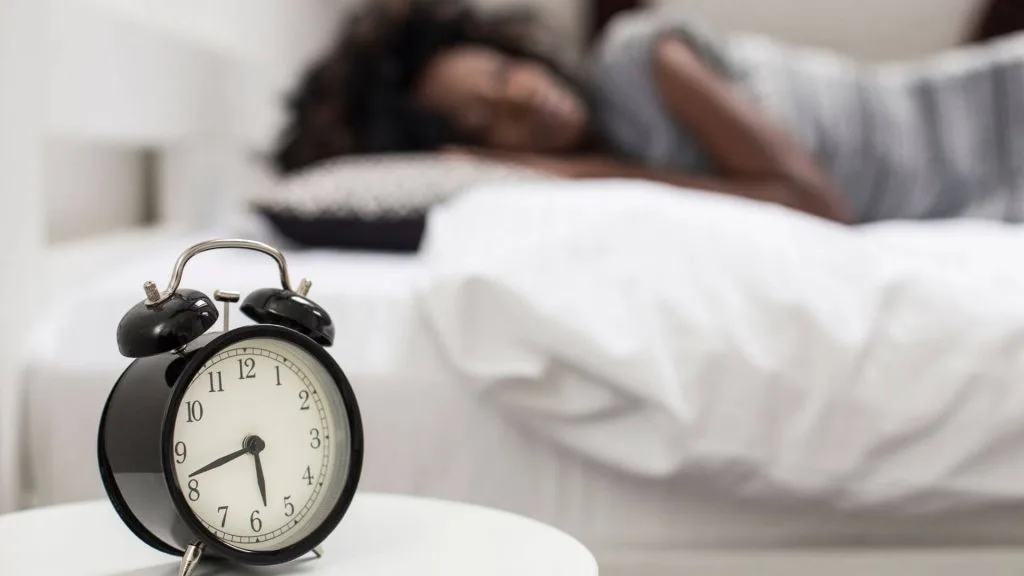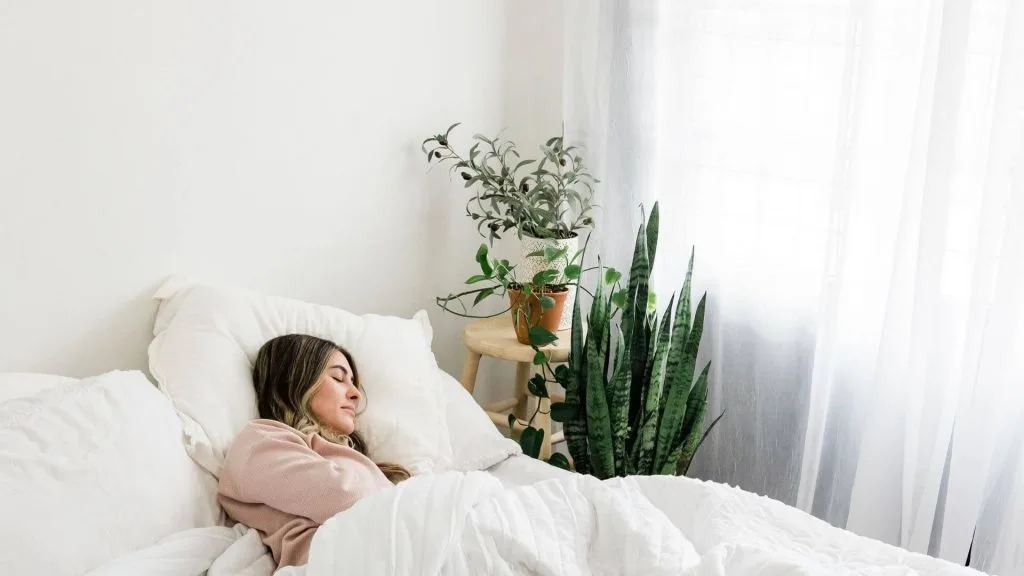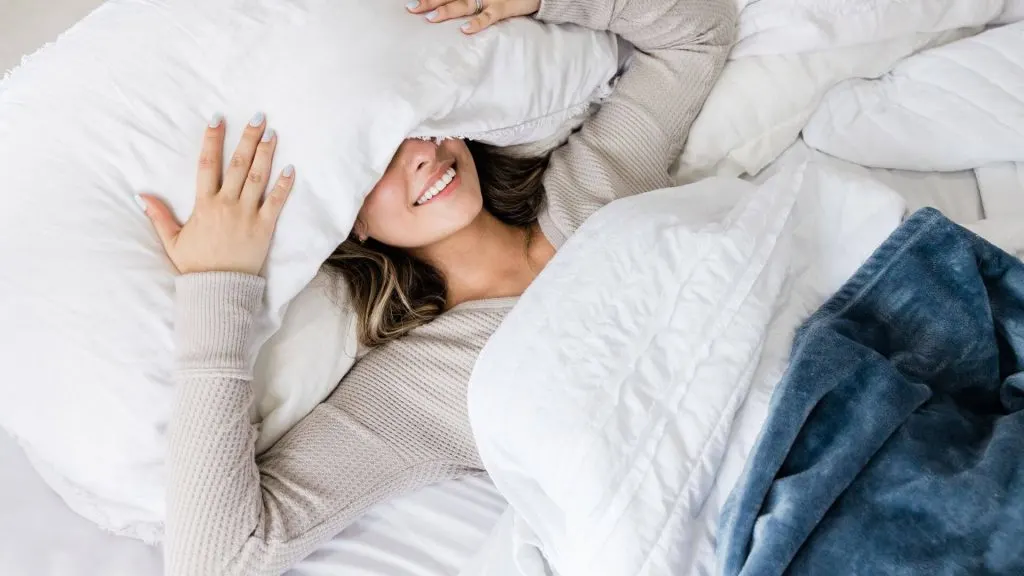Can’t get enough sleep? These may be some of the reasons! Help yourself with these tips.
Getting enough sleep is crucial for optimal health. Not only does it make you feel refreshed and energized, but it’s also essential for cognitive function, emotional well-being, and overall physical health. Lack of sleep has been linked to various health problems, including obesity, heart disease, stroke, and diabetes.
Reasons You Can’t Get Enough Sleep

So why can’t you get enough shut-eye? Here are some common reasons.
If you still want to dig deeper after reading about sleep and how to get more, Sleepfamily answers your most common questions related to sleep, health, and overall well-being. Why don’t you take a look at their resources?
You Have an Uncomfortable Sleep Environment
If your bedroom is too hot, too cold, or too bright, it can make it difficult to fall asleep and stay asleep. To create a more restful environment, keep your bedroom cool (between 60 and 67 degrees Fahrenheit), dark, and quiet. Use blackout curtains, an eye mask to block light, and earplugs to reduce noise.
Your beddings are also important for a comfortable sleep environment. Invest in a good mattress and pillow that will support your body and help you stay comfortable throughout the night. A vesper mattress at vespersleep.com can be a great option as it is specifically designed for people who want to improve their sleep quality. The best beddings for you allow you to sleep comfortably in any position.
You’re Stressed Out
Stress is one of the most common reasons people have trouble sleeping. When stressed, your body releases hormones like cortisol, making it harder to fall asleep and stay asleep. In addition, stress can lead to racing thoughts that make it challenging to quiet your mind at bedtime.
To help manage stress and get better sleep, try regular exercise, yoga, meditation, or deep breathing exercises. You may also want to journal before bedtime to get any racing thoughts out of your head.

You’re Drinking Caffeine Late in the Day
Caffeine is a stimulant that can make it harder to fall asleep and stay asleep. If you’re sensitive to caffeine, you may need to avoid it in the evening. But even if you’re not sensitive to caffeine, it can still disrupt your sleep if you drink it too late in the day.
To avoid caffeine-related sleep problems, limit your intake to early in the day and reduce consumption at least six hours before bedtime. With that said, everyone’s caffeine sensitivity is different, so you may need to experiment to see what works best for you.
You’re Eating Too Much before Bedtime
Eating a large meal before bed can make it difficult to fall asleep. That’s because your body is working to digest the food instead of relaxing. In addition, certain foods can disrupt sleep, such as spicy foods, sugary snacks, and acidic foods.
To help you sleep better, avoid eating large meals in the evening. If you’re hungry at night, try a light snack such as yogurt, whole grain toast, or a small piece of fruit. This will give your body enough time to digest the food, making you more likely to fall and stay asleep.

You Have Sleep Apnea
Sleep apnea is a condition that causes you to stop breathing for short periods during sleep. It can be caused by an obstruction in the airway, such as excess weight or enlarged tonsils. Sleep apnea can lead to daytime fatigue, and it’s been linked to an increased risk of heart disease and stroke.
If you think you may have sleep apnea, talk to your doctor. They may recommend a sleep study to confirm the diagnosis. If you have sleep apnea, treatment options include wearing a CPAP mask during sleep or surgically correcting the obstruction in the airway.
You Have Restless Leg Syndrome
Restless leg syndrome (RLS) is a condition that causes an irresistible urge to move your legs when you’re trying to sleep. It’s often accompanied by a tingling or prickling sensation. RLS can make it difficult to fall asleep and stay asleep.
There is no cure for RLS, but treatments can help relieve symptoms. These include medications, low-impact exercise, and massage. Sometimes, lifestyle changes such as avoiding caffeine or eating a healthy diet can also help.
You’re Taking Certain Medications
Certain medications, such as beta blockers, antidepressants, and blood pressure medications, can interfere with sleep. If you’re taking medication and having trouble sleeping, talk to your doctor about other options. They may be able to adjust the dosage or switch you to a different medication.
Some over-the-counter medications can also cause insomnia. These include cold and allergy medications that contain pseudoephedrine, as well as thyroid supplements. If you’re taking these medications and having trouble sleeping, talk to your doctor or pharmacist about other options.
If you’re having trouble sleeping, it could be one of these reasons. To get better sleep, try changing your sleep environment or routine. If you think you may have a sleep disorder, talk to your doctor. You can get the restful sleep you need with proper diagnosis and treatment.

Jessi is the creative mind behind The Coffee Mom, a popular blog that combines parenting advice, travel tips, and a love for all things Disney. As a trusted Disney influencer and passionate storyteller, Jessi’s authentic insights and relatable content resonate with readers worldwide.

The Top Secrets To A Healthy And Happy Life — The Coffee Mom
Saturday 14th of October 2023
[…] It’s crucial to identify what keeps you awake at night so you can put a stop to it because not getting enough sleep might have major negative […]
Medical Tips to Help You Live a Carefree Life
Tuesday 16th of May 2023
[…] critical medical tip for living a carefree life is to get enough sleep. Aim for eight hours of sleep, so you are less likely to feel anxious and stressed if you’re […]